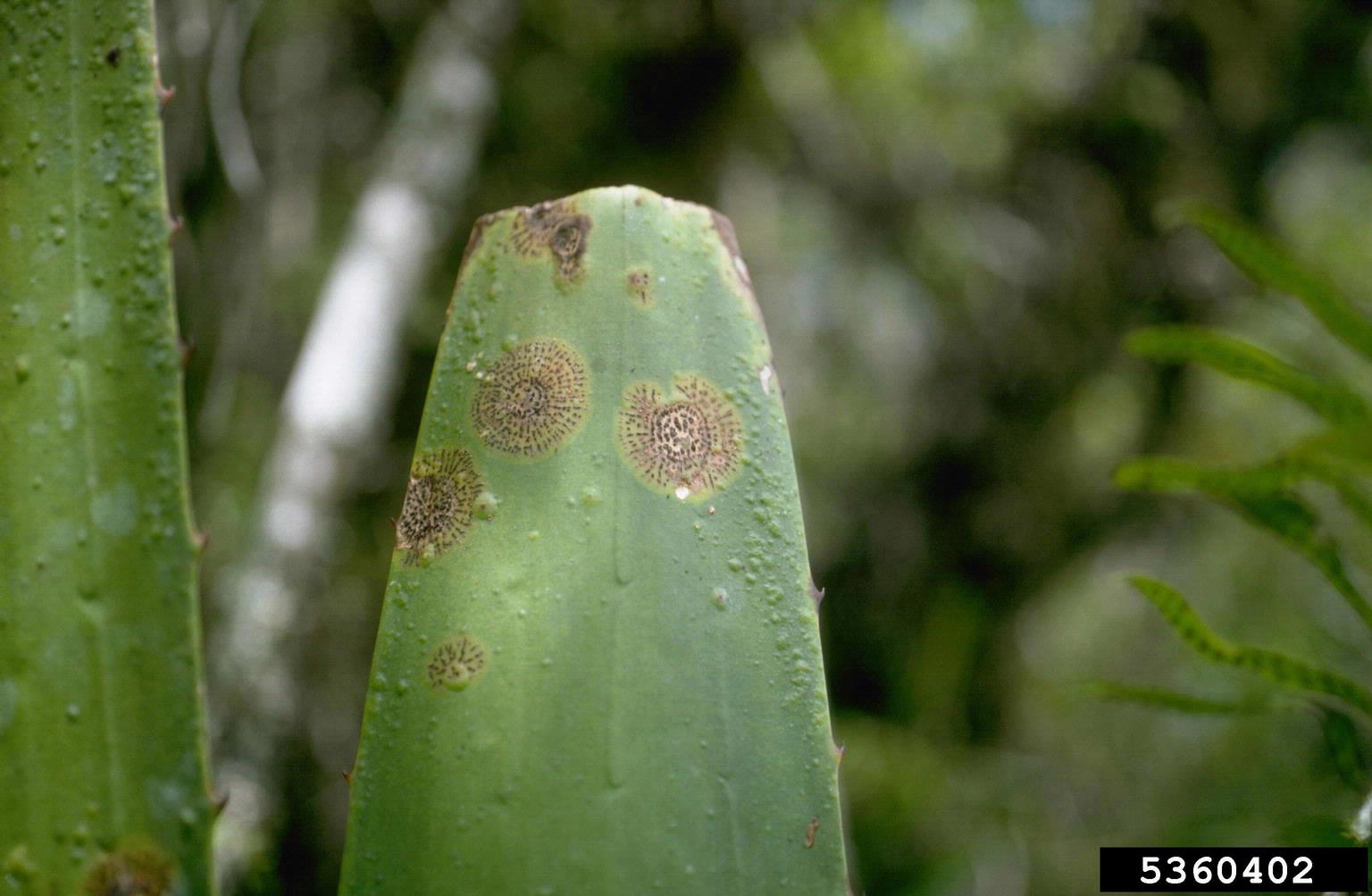Spots On Yucca Leaves: Care For Yucca Plant With Black Spots


Yuccas are elegant, spiky-leaved plants that provide an ornamental architecture to the landscape. Like any foliage plant, they can be damaged by fungus, bacterial and viral diseases, and pest infestations. Black spots on yucca may be caused by any of these problems. Treatment solutions are repetitive spraying, manual leaf washing, and good soil management.
Reasons for Yucca Plant with Black Spots
Spots on yucca leaves are primarily a visual distraction but in some cases can actually impose health problems as well. Yucca plant foliage is sensitive to overhead watering in warm, moist regions, which promotes fungal spore development. Additionally, insect feeding may cause a yucca plant with black spots. Bacteria are also present in overly moist environments. We will investigate each possibility to see if the cause can be narrowed down.
Leaf Spot Diseases of Yucca
Both fungal and viral diseases may produce spots on yucca leaves. Cercospora, Cylindrosporium, and Coniothyrium are the dominant suspects of yucca plant leaves with discolorations. Spores from these fungi are spread in water splatters to the leaves, which is why overhead watering is not recommended. Cutting off the foliage is the first line of defense. Applications of copper fungicide are also recommended for fungal leaf spots. Spray in spring with an ornamental fungicide to prevent spores from forming and destroying yucca plant leaves anew. Likewise, neem oil can be used. Leaf spot or blight is a bacterial disease that causes dark lesions on the foliage. It is a disease of many ornamental plants and can be spread in soil. Bacterial leaf spot or blight is common on many ornamental plants. Potted plants are easier to manage than those in the ground. They need to be allowed to dry out for a week or more between watering. Apply water at the base of the plant and use a good sterilized potting soil that won't carry spores or disease-causing bacteria.
Pests That Cause Yucca Spots
Sneaky little insects are often the cause of a yucca plant with black spots. Scale insects are sucking pests whose feeding causes damage to the leaves. Yucca plant bugs also feed by sucking the sap from the foliage. Their damage is yellowish-white, but the insects also deposit extract on the yucca foliage, leaving sticky, black spots. Management of these pests can be done by wiping leaves with a light alcohol solution or combating with pest spray formulated for these insects. The insect cycle requires many applications throughout the season for good control. System insecticides also have a good effect since the chemical is carried in the vascular system of the leaf and the insect sucks it out. Basically, the pest poisons itself during feeding and dies. Use of a horticultural soap or simply a mixture of 1-pint (480 mL.) water, 1-quart (1 L.) rubbing alcohol, and a teaspoon (5 mL.) of dish soap every week for a month, will also help contain any pests. Be certain to spray both the upper and lower surfaces of the leaf for good yucca black spot control. As with fungal spots, neem oil can also be used. Taking care to avoid black spots on yucca will keep your plant looking its best year-round.
Sign up for the Gardening Know How newsletter today and receive a free copy of our e-book "How to Grow Delicious Tomatoes".

Bonnie Grant is a professional landscaper with a Certification in Urban Gardening. She has been gardening and writing for 15 years. A former professional chef, she has a passion for edible landscaping.